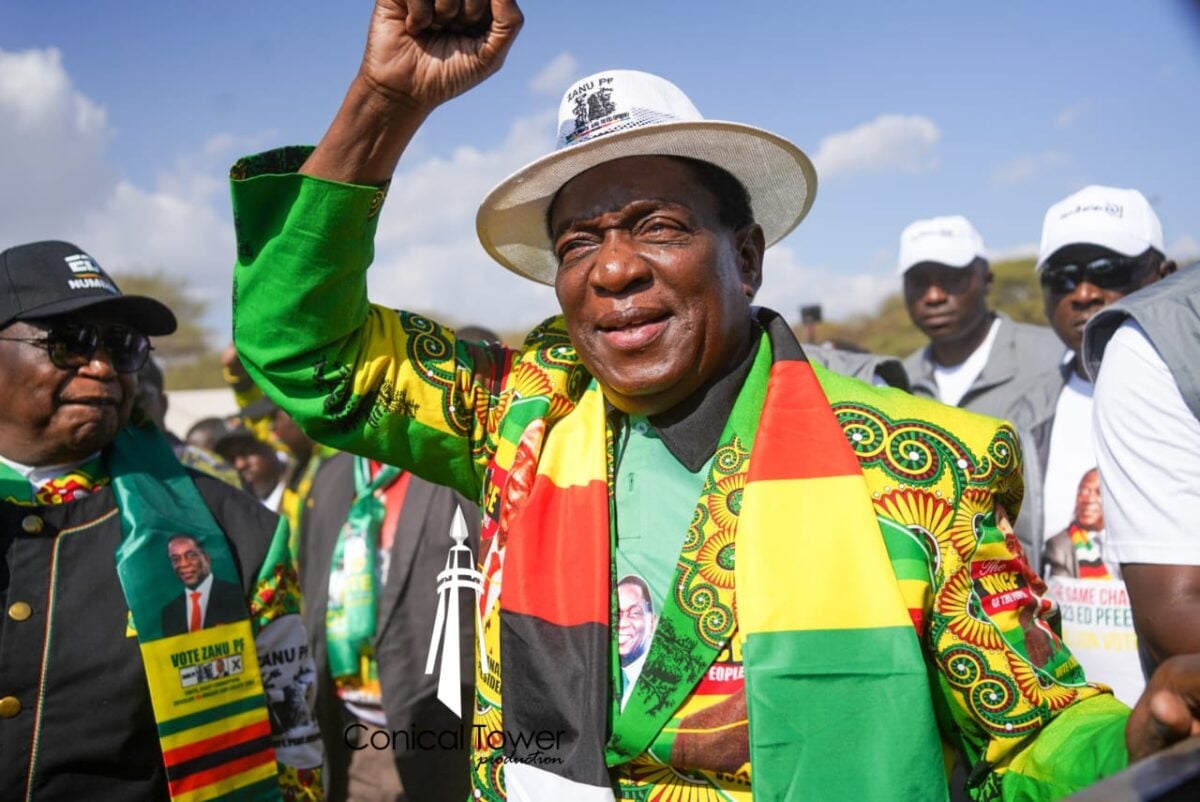Zimbabwean Politicians Using Dancehall To Woo Young Voters

Like they did in 2018, Zimbabwe presidential hopefuls are using Dancehall music as its “official soundtrack” to woo, what international news agency Reuters has described as, the “crucial youth vote”, as the country prepares to go to the polls on August 23.
According to Reuters, the leading candidates, the incumbent Emmerson Mnangagwa of the longtime ruling ZANU-PF party and Nelson Chamisa of the new Citizens Coalition for Change, are going after the youth vote with alacrity.
Robert Mugabe’s successor Mnangagwa is seeking a second term and sees youth as critical to the August 23 elections, due to one-sixth of Zimbabwe’s electorate being first-time voters. Consequently, he has sought to energise young voters with high-tempo campaigns featuring pop stars and sporting heroes.
“The local version of Jamaican Dancehall (Zim-Dancehall) has become the unofficial soundtrack of Zimbabwe’s presidential election as candidates go all out to woo a key generation of voters who were children when long-time ruler Robert Mugabe was ousted six years ago,” the news agency said.
“Most campaign rallies blare out the local version of Jamaican dancehall music, hugely popular among the youth… Political parties are doing everything they can to win them over, posting social media videos featuring pop stars and fielding younger candidates in parliamentary and council contests… Any path to victory has to lie through the three-quarters of Zimbabwe’s population that is under 34. The one-sixth of the registered electorate who are first-time voters will be crucial,” it added.
According to musicinafrica.com, Zim-Dancehall owes its origins to Jamaican Reggae music, which became popular in the country following “Bob Marley’s memorable performance at independence in 1980”.
The popularity surged following visits by other Jamaicans artists such as Shabba Ranks in 1993 and Sizzla Kalonji and Capleton in 2010, which had massive turnouts.
The publication noted that Zimbabwean artists began to sing their own version of Dancehall in the 1990’s with deejays such as Major E, Booker T and Potato “gaining fans with their Jamaican-style lyricism”.
Additionally, the publication states that “the rise of Zim-Dancehall in its present form began after 2000 with the increase of so-called ‘backyard studios’, which made use of cheap computer software to produce relatively quality music”.
This, it said, resulted in stars such as Wallace ‘Winky D’ Chirumiko and King Labash gaining popularity with Shona hits like ‘Chaputika’ and ‘Kukonzeresa’, proving that local musicians could also produce and give a local flavour to international music”.
“Subsequent visits by Jamaican artists to Zimbabwe began to show that local fans were beginning to appreciate their own artists over the highly-rated foreign acts. In 2011 Dancehall stars Sean Kingston and Mr Vegas came to Zimbabwe and received a rude awakening when local fans booed them offstage in preference of Zim artists such as Winky D and Donald ‘Sniper Storm’ Chirisa,” it said.
This is not the first political parties have fused Dancehall music into their campaigns.
In May 2018, Newsday Zimbabwe reported that Zim-Dancehall was being used to lure the youth vote, so much so that Zimbabwean Dancehall star, Winky D, was billed to perform at a public concert to encourage people to register to vote, and to participate in elections peacefully.
The publication also noted that non-governmental organisation, the Election Resource Centre (ERC), facilitated 107 road shows, and working with the Zimbabwe Electoral Commission (Zec), facilitated mobile registration centres at the roadshow sites, managed to get an average of 500 people to register per roadshow, largely influenced the youths to register to vote.
“In addition to using the power of live music at roadshows, ERC also had voter education jingles that had Zim-Dancehall musicians, notably Winky D, encouraging people, especially the youth to vote.
“At these roadshows, music, especially Zim-Dancehall, played a crucial role, as it is the youth’s favourite. When the dancehall artistes performed and encouraged people to register, it must surely have pushed the number of youth who turned up at the Zec registration centres,” it noted.
At the time the publication quoted one newly registered young voter as saying that he had enumerated as he was inspired by Winky D.
“I heard Winky D was coming to register to vote here and to encourage us to do the same. I love ChiGafa, and his music inspires me, so do his words. That is just the power of his music in my life,” the youngster had said.
“That is the power of music, and if history is to be written, and research is to be conducted, and theses are to be written, then 2018 elections will, with no doubt, be concluded, as the election when Zim-Dancehall was the sound that influenced the youth to be part of those deciding the country’s future,” the publication had noted.
